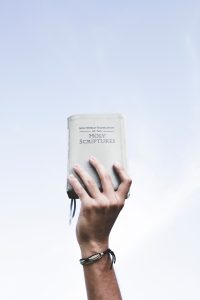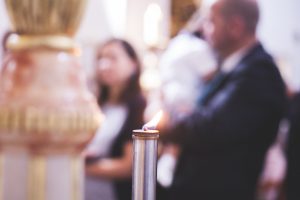Anabaptists and Believers’ Baptism
![]()
Believers’ Baptism:
Let us start with a four-minute clip from Paul Eddy and Greg Boyd at Woodland Hills on baptism and citizenship. They state the Anabaptists’ objection to infant baptism succinctly. We remember that Religion and the State were one.
Even today, Christian religions argue about baptism: when to baptize and why, and where evidence of infant vs believers’ baptism exists in the Bible. As I’ve been reading for answers, it’s become clear that all folks use Scripture passages to prove their own points. The trail is muddy.
An article in ‘Got Questions’ addresses seven baptisms mentioned in the Good Book. In the author’s view, none of the Scripture passages specifically portray infant baptism. His examples include Moses, John the Baptist, Jesus himself, the baptism of fire, of the Holy Spirit, of the cross, and of believers.
Catholic.com gives us two offerings against believers’ baptism: one on infant baptism and the other on early teachings about infant baptism. The second uses writings by such luminaries as Irenaeus, Hippolytus, Origen, Cyprian of Carthage, Gregory of Nazianz, John Chrysostom, and even the great Augustine.
Take a brief glance at these passages by brilliant men, and you may be able to feel the stubborn resistance, confusion, and fear of the Anabaptists as they underwent inquisition and debate by the authorities, often of the Reformed state church.
Walter Klaassen provided some of the most readable writings for my AMBS class. The following makes use of his essay ‘The Bern Debate of 1538, Christ the Center of Scripture.’ *
The debate was a set up from the beginning, even though the Swiss Brethren had asked for the contest, hoping to ease pressure against them by winning better understanding of their positions. The Reformed clergy’s (authorities) only desire was domination and conversion of the nonbelievers. The Brethren did gain promises of safe passage to and from the debates, which was fortuitous given the outcome. In 1531, a law that demanded attendance at the state church had been written. It was designed to target the Anabaptists, who refused to attend, and some of whose members had already been exiled. By 1538, the clergy had devised rules for debates that were iron-clad.

Photo by Ian Espinosa on Unsplash
First, the Old and New Testaments had to be seen as equal in authority. Leading with this discussion point put the Anabaptists in a heretical light immediately. (The Swiss Brethren believed that the New Testament and the coming of Jesus fulfilled the Old Testament.) All other statements by them could be bulldozed.
By the way, our AMBS professor Loren L. Johns gave us readings that helped us understand the Anabaptists’ positions on believers’ baptism and the New Testament. Many of their arguments were perhaps somewhat over-stated because they were expressed in contests where the outcomes were dire. They had to try to convince others of views that were contrary to established law. Surely, they pushed their positions harder than they might have, had they been allowed to worship as they pleased. Look at our churches now, and we see how easily they slip into easy rules and relaxed theology. The Anabaptists–believing that Jesus Christ and the Sermon on the Mount preached maxims that must carried through–were not simply conversational.
Second, the clergy decreed that ‘the clearer passage interprets the ambiguous passage.’ Not a problem for Protestants at all, unless one wondered who ‘decides whether a passage is clear or ambiguous?’ The one who is allowed to decide holds all the power. Thus, many Anabaptists fought for a decentralized congregational body, where the Scriptures would be interpreted by discussion and prayer.
Third, and this one is sad, the clergy admitted that they were not following the words of Christ, but that the situation in Bern ‘made a strict application of the rule of Christ impossible.’ They explained that ‘love and faith revealed the intention of Scripture and overruled the letter of Scripture.’ The Swiss Brethren were accused of being too literal. Don’t love and faith sound nice? How often have we humans used nice phrases to justify power?

Photo by Gardie Design & Social Media Marketing on Unsplash
Not only were the authorities educated, but many appear to have been schooled in ‘the devices of formal logic such as syllogisms and the Aristotelian laws of logic.’ Klaassen presents an argument about infant baptism that the clergy used: All who belong to God have the Holy Spirit/Children belong to God/Therefore children have the Holy Spirit. Thus, Acts 10:47 meant that children should be baptized because they already have faith. The Anabaptists heard ‘suffer the little children to come unto me’ but interpreted the passage as they felt Matthew 18 intended: Whosoever therefore shall humble himself as this little child, the same is greatest in the kingdom of heaven. (KJV) The Anabaptists believed that Jesus blessed, not baptized the children, and that each adult must become as mentally and emotionally open as a child to understand the Kingdom of Heaven. Also, they were fully aware that the use of infant baptism in Reformation times was for the census and cataloguing of citizens, not primarily for Biblical purposes.
In the debate, the clergy used such luminary fathers as Origen and Augustine to ‘prove’ that infant baptism was begun by the apostles—see their use above in today’s Catholic.com article.
Last, and most forcefully, the clergy said that those who couldn’t understand the original biblical languages plus Latin simply weren’t able to interpret Scripture: period.
The debate ended in failure for the Swiss Brethren (and those who had come to help them from as far as Austria and Bavaria.) The contest was led by those who ‘held the power of life and death over the other.’ The clergy tried to appear kindly by giving their opponents one more chance to recant. The Brethren wouldn’t disavow, so they were escorted to the frontier and banned on pain of the sword should they ever return.
It doesn’t sound so bad, except that one assumes their land holdings and businesses were confiscated. I remember finding one of my family’s original farms in Switzerland’s Emmental region. The fellow who now owned the farm didn’t want to talk to me. My husband and I went to the Jura Mountains and found the descendants of the Emmental folk who had been ‘moved’. The French there had allowed the Anabaptists to farm in the rocky highlands as long as they didn’t come down and proselytize. We had a wonderful afternoon with the cousins. We sang hymns, we all tried out our French, English and Swiss, we laughed, we cried.
Klaassen tells us that the original minutes of the Bern Debate of 1538, although precious to us Anabaptists today, are catalogued in the Bern state archives as part of Volume 80 of Useless Papers.**
____________________________________
* Walter Klaassen’s writing is chapter 8 in “Essays in Biblical InterpretationL Anabaptist-Mennonite Perspectives”, ed. Willard M Swartley: Test-Reader Series, no 1. Elkhart, IN: Institute of Mennonite Studies, 1984, pp. 106-114.
** Acta 304-5: Acta des gespraechs zweuschen predicannten Unnd Tauffbruderen Erganngen, Inn der State Bernt von xja Mertzenns, biss uf de xuija Desselben Monats Im M.D. XXXVIIIten Jar. Klaassen used a microfilm of a typewritten copy of the minutes which is located in the Goshen College Historical Library.
_________________________________
I welcome your comments: gretaholtwriter.com/blog.
{Thank you to my niece, Addie Liechty, for taking the picture that is this blog’s featured image. Her blog is: https://addieswriting.wordpress.com.}
Best wishes and have a good week.
Greta